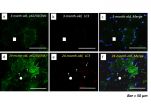Turning paper industry waste into chemicals
2015-06-08
(Press-News.org) Researchers at the KU Leuven Centre for Surface Chemistry and Catalysis have found a more eco-friendly way to derive lignin - a paper industry waste product - from wood and convert it into chemical building blocks. The resulting chemicals can be used in paint, insulation foam, and several other products. The researchers published their findings in the journal Energy & Environmental Science.
Lignin is a substance in the cell walls of plants that strengthens their structure. When wood is processed into paper pulp, lignin is produced as a waste product. Researchers have long been trying to valorise this lignin waste stream, says Professor Bert Sels. "The traditional method to remove lignin from the pulp requires heavy chemistry and has side-effects: you end up with lignin that is unsuitable for further processing." Therefore, the paper industry usually burns the lignin, even though it is a rather low-grade fuel.
Rather than focusing on the valorisation of this side stream of degraded lignin, the researchers from KU Leuven developed an alternative method to simultaneously convert the wood into usable paper pulp and high-grade lignin-derived products.
"Our method involves feeding wood into a small chemical reactor and adding a catalyst - to set off the chemical reaction - as well as a solvent", Sels explains. "With the right temperature and pressure, we can separate the lignin from the pulp and disassemble it into smaller components. The result is a lignin oil that is easier to convert into chemical building blocks. These building blocks, in turn, can be used in plastic, insulation foam, solvents, colourings and flavourings, medicines, ink, paint, and so on."
Only a while ago, the researchers from the Centre for Surface Chemistry and Catalysis had already developed a method to convert the cellulose in wood into hydrocarbon chains. These hydrocarbons can be used as an additive in gasoline, or as a component in plastics.
"Bio-refining techniques typically only target polysaccharides such as cellulose", Sels continues. "Our study about turning sawdust into gasoline is a case in point. This new study however rethinks the concept of bio-refining: for the first time we focus on lignin - and not cellulose - as the starting point to make chemical building blocks from wood. Ours is a sustainable method to turn lignin - once a waste product - into useful chemicals for industrial purposes while keeping the paper pulp available for further processing. This brings added value to the paper industry, which is a great bonus in the current economic context."
INFORMATION:
Media contacts:
Professor Bert Sels, Faculty of Bioscience Engineering, Centre for Surface Chemistry and Catalysis, tel: + 32 16 32 15 93, e-mail: bert.sels@biw.kuleuven.be.
Dr Bert Lagrain, Faculty of Bioscience Engineering, Centre for Surface Chemistry and Catalysis, tel: +32 16 32 16 27, e-mail: bert.lagrain@biw.kuleuven.be.
Full text
The full text of the study "Reductive lignocellulose fractionation into soluble lignin-derived phenolic monomers and dimers and processable carbohydrate pulps", published in Energy & Environmental Science, can be accessed here: http://pubs.rsc.org/en/content/articlelanding/2015/ee/c5ee00204d#!divAbstract (DOI 10.1039/C5EE00204D). Alternatively, copies can be obtained from the media contacts above.
Funding
The study was financed by FISCH (Flanders Innovation Hub for Sustainable Chemistry), IWT (the Flemish government agency for Innovation by Science and Technology), and FWO (Research Foundation Flanders). It is part of the FISCH project ARBOREF, which unites biologists, chemists, and bio-engineers from KU Leuven, UGent, UA, VITO, and VIB to examine the implementation of non-edible biomass as a raw material for the chemical industry and an alternative to fossil feedstocks.
ELSE PRESS RELEASES FROM THIS DATE:
2015-06-08
CINCINNATI - Children who received general anesthesia for surgery before age 4 had diminished language comprehension, lower IQ and decreased gray matter density in posterior regions of their brain, according to a new study in the journal Pediatrics.
Researchers from Cincinnati Children's Hospital Medical Center report their findings in the journal's June 8 online edition. The authors recommend additional studies to determine anesthesia's precise molecular effects on the brain and contribution to diminished brain function and composition. Researchers say this knowledge ...
2015-06-08
Philadelphia, PA, June 8, 2015 - Barrett's esophagus (BE) develops in a subset of patients with gastroesophageal reflux disease (GERD) and can increase the risk of developing cancer of the esophagus. Although periodic surveillance for cancer is recommended for BE patients, these examinations may fail to identify pre-cancerous dysplasia and early cancers. A report in the Journal of Molecular Diagnostics describes a test using next-generation sequencing (NGS) to detect genomic mutations in precancerous esophageal tissue, which may improve cancer surveillance and early detection ...
2015-06-08
Just one in 20 people worldwide (4·3%) had no health problems in 2013, with a third of the world's population (2·3 billion individuals) experiencing more than five ailments, according to a major new analysis from the Global Burden of Disease Study (GBD) 2013, published in The Lancet.
Moreover, the research shows that, worldwide, the proportion of lost years of healthy life (disability-adjusted life years; DALYS [1]) due to illness (rather than death) rose from around a fifth (21%) in 1990 to almost a third (31%) in 2013.
As the world's population grows, ...
2015-06-08
Sarcopenia is the aging-related loss of skeletal muscle mass and strength. Preventing sarcopenia is important for maintaining a high quality of life (QOL) in the aged population. However, the molecular mechanism of sarcopenia has not yet been unraveled and is still a matter of debate.
Determining whether the levels of autophagy-related mediators (e.g., p62/SQSTM1, LC3, etc.) in muscle change with ageing is important to understanding sarcopenia. Such information could enhance the therapeutic strategies for attenuating mammalian sarcopenia.
In previous studies, autophagic ...
2015-06-08
Debates about legalizing marijuana have focused on crime rates, economic benefits, and health effects among adults. But a study published today from researchers at Nationwide Children's Hospital shows that the risk to young children of swallowing, breathing in or otherwise being exposed to marijuana also needs to be considered.
The study, published online today in Clinical Pediatrics, found that the rate of marijuana exposure among children 5 years of age and younger rose 147.5 percent from 2006 through 2013 across the United States. The rate increased almost 610 percent ...
2015-06-08
SEATTLE -- People across the world are living longer but spending more time in ill health as rates of nonfatal diseases and injuries - including diabetes and hearing loss - decline more slowly than death rates, according to a new analysis of 301 diseases and injuries in 188 countries.
Using a measurement known as years lived with disability, or YLDs, researchers from around the world quantified the impact of health problems that impair mobility, hearing, or vision, or cause pain in some way but aren't fatal. In 2013, low back pain and major depressive disorder were among ...
2015-06-08
Clermont, Florida. (June 8, 2015) - A new national survey about men and their cars, commissioned by Orlando Health, found that more than 80 percent of men could remember the make and model of their first car, but only about half could remember the last time they went to the doctor for a check-up.
The survey of approximately 1,000 men is being released in conjunction with the start of the Drive For Men's Health, a cross-country event where two of the top men's health surgeons in the US will travel 6,008 miles to promote awareness on various men's health topics. ...
2015-06-08
Cancer cells share certain traits with anti-social members of human society. They shirk community responsibilities and engage in behavior aimed at fulfilling their selfish needs at the expense of the greater good.
In a new study, Athena Aktipis, a researcher at Arizona State University's Biodesign Institute, along with her international colleagues, explore the ways in which cancers bypass the protective mechanisms used by multicellular forms to ensure their survival and wellbeing.
The paper identifies five foundations of multicellularity; maintenance factors present ...
2015-06-08
The study, by engineers at the University of Sheffield, is the first to prove conclusively that contaminants can enter pipes through leaks and be transported through the pipe network.
The pressure in mains water pipes usually forces water out through leaks, preventing anything else from getting in. But when there is a significant pressure drop in a damaged section of pipe, water surrounding the pipe can be sucked in through the hole.
It had been assumed that only clean water from the leak would be sucked in, and that even if contaminants were sucked in these would ...
2015-06-08
Glasgow, United Kingdom: The largest study to date of attitudes towards the use of genomic information shows that the majority of people want access to results from genome sequencing, even if these are not directly related to the condition for which the analysis has been undertaken. This applies even when the data are not health-related or are simply 'raw', a researcher will tell the annual conference of the European Society of Human Genetics today (Monday).
Dr Anna Middleton, a Principal Staff Scientist at the Wellcome Trust Sanger Institute, Cambridge, UK, will describe ...
LAST 30 PRESS RELEASES:
[Press-News.org] Turning paper industry waste into chemicals


